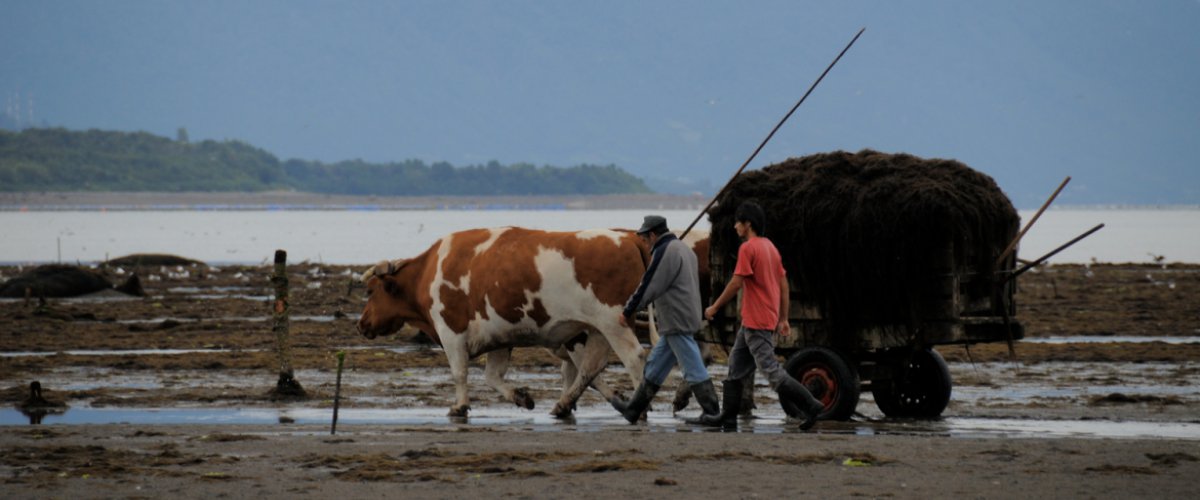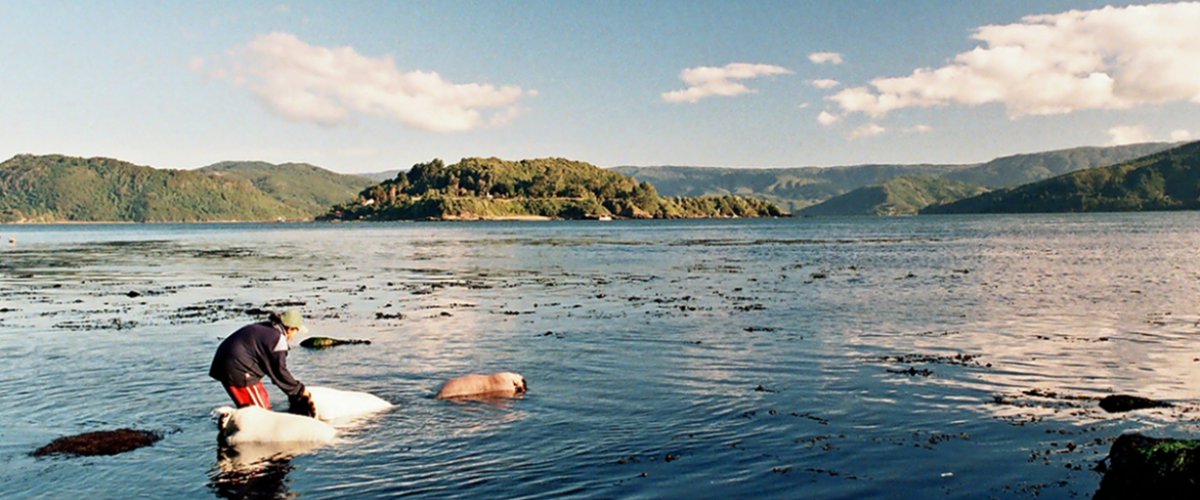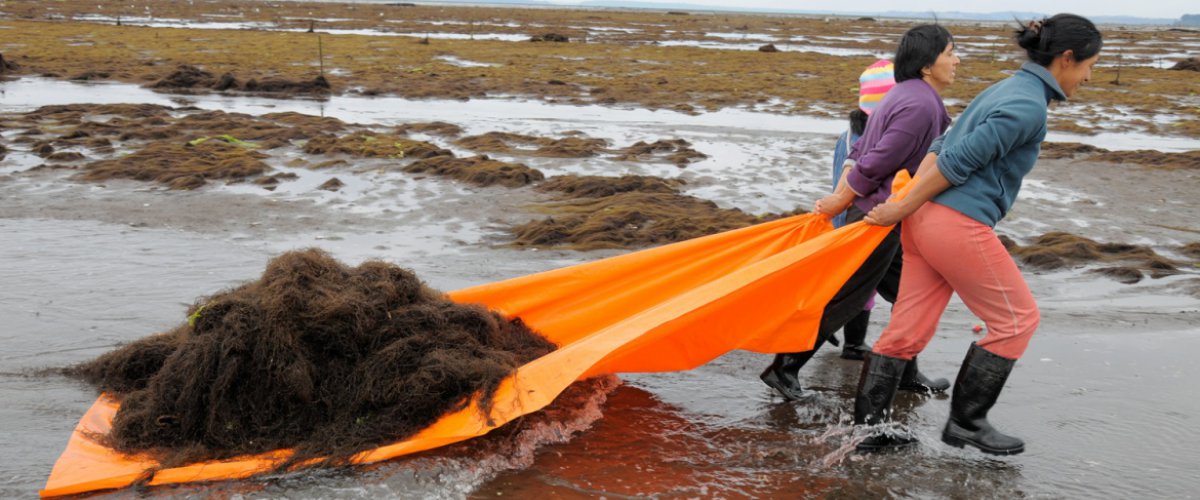Domestication, management of genetic resources and environmental impact
Domestication not only modifies the expression of phenotypes of interest, but also leaves a genetic signature that affects both the genome structure and the genetic diversity of the domesticated species. Among the research lines currently in progress in our group is the domestication history of the red alga Gracilaria chilensis. We investigate the loss of sexual function due to extensive clonal propagation and examine how it may influence the outcome of domestication in G chilensis. The role of the reprodutive system in the domestication process is investigated through population genetics approaches, by studying clonal and partially clonal populations of G chilensis.
We also investigate the effect of harvesting and global changes on kelp forests in different regions around Brittany. Our data will be integrated to analyses at the scale of Europe in order to implement Ecological Niche Models that aim at evaluating the effect of climate change on the distribution range of species (Biomare project, coord. G. Beaugrand, Univ. Lille). In addition, they will serve to establish a European data base on the status of kelp forests along European coats (Knowledge Network for EUropean expertise on biodiversity and ecosystem services, Kneu EU Network Euromarine).
Finally, a third research axis aims at estimating the potential impact of the 2010 earthquake on genetic diversity of two seaweed species, Lessonia spicata and Gracilaria chilensis. We have collected field samples of both species for population genetics analyses before the earthquake event. We will compare spatial and temporal genetic diversity before and after the earthquake in different localities more or less impacted, in order to estimate the resilience of both natural (sexually reproducing) and farmed (clonally propagating) populations of G chilensis, and of natural populations of L spicata. Source of new migrants and recolonization patterns will be investigated in both species by combining genetics and demography approaches.









